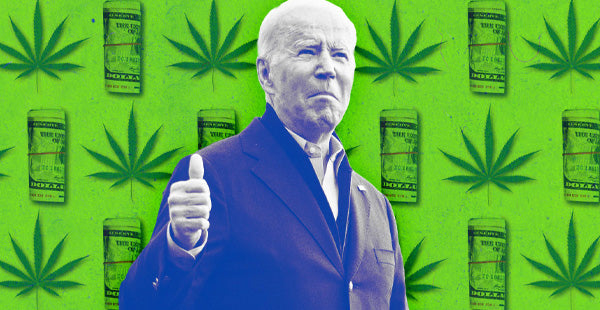A group comprising 36 members of Congress has united to call upon President Joe Biden to extend clemency to all individuals presently serving time in federal penitentiaries for non-violent cannabis-related convictions by commuting their sentences. They highlight the fact that the pardons issued by the President thus far for mere possession offenses have not resulted in the release of any incarcerated individuals.
Led by Representatives Barbara Lee (D-CA) and Earl Blumenauer (D-OR), co-chairs of the Congressional Cannabis Caucus, the coalition penned a letter to the President on Thursday. They underscored how the continued imprisonment of these individuals perpetuates the discriminatory legacy of the War on Drugs, conflicts with prevailing societal and legal attitudes toward marijuana, and imposes an unnecessary burden on the moral fabric and justice system of the nation.
Addressing President Biden's 2020 campaign vow to federally decriminalize cannabis, liberate those incarcerated over marijuana-related charges, and expunge associated criminal records, the letter stresses his unique authority to drive criminal justice reform until Congress passes comprehensive marijuana legislation.
Contrary to claims made by the President, his pardons have not facilitated expungements or the release of incarcerated individuals. This misstatement was reiterated recently during his State of the Union address. In reality, the pardons merely symbolize formal forgiveness from the government without eradicating criminal records, and none of the recipients were serving active prison sentences for their charges.
The coalition's plea coincides with Vice President Kamala Harris's scheduled meeting with cannabis pardon recipients at the White House, aiming to understand their experiences under the President's clemency directives.
The lawmakers emphasize that federal courts adjudicate only a handful of simple marijuana possession cases annually, with none of these resulting in federal incarceration. Furthermore, the general pardons failed to alleviate the plight of individuals burdened by criminal records. Most federal marijuana cases involve felony offenses, which impose significant civil disabilities such as disenfranchisement and severe collateral consequences like barriers to employment, housing, and education.
In light of the nationwide transformation in marijuana laws and the bipartisan opposition to its prohibition, the lawmakers stress the inconsistency of federal incarceration for marijuana offenses. They share anecdotes of individuals like Jerry Haymon and Danny Travino, who remain imprisoned for non-violent federal cannabis convictions, underscoring the urgency to rectify the injustices perpetuated by outdated policies.
The signatories assert that the cited individuals represent only a fraction of those incarcerated for actions no longer considered criminal in numerous states, urging President Biden to commute the sentences of all individuals imprisoned for marijuana offenses, pardon those already integrated into society, and endorse federal legislation for expunging marijuana-related convictions. They view this as an opportunity for the President to fulfill his promises, improve lives, and build upon his previous acts of clemency.
Weldon Angelos, who received a presidential pardon for his own cannabis case under the previous administration, commended the lawmakers for acknowledging the injustice of lengthy incarcerations for acts now legal in most states and conducted on a larger scale by state-legal cannabis enterprises. He emphasizes the contradiction between continued marijuana-related incarcerations and principles of justice and equity in a rapidly evolving legal landscape.
Representatives Lee and Blumenauer have additionally advocated for the administrative descheduling of cannabis, urging the President to go beyond the Schedule III reclassification recommendation and completely remove cannabis from the Controlled Substances Act to expedite federal legalization.
Moreover, Blumenauer and a Republican colleague recently criticized the Drug Enforcement Administration and the Department of Health and Human Services for their sluggishness in removing research barriers under legislation signed by President Biden in 2022, meant to streamline the process.



Leave a comment
This site is protected by hCaptcha and the hCaptcha Privacy Policy and Terms of Service apply.